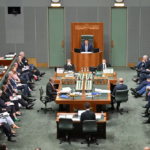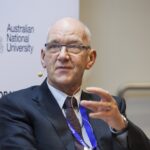Higher income support payments could prevent homelessness
The inadequacy of income support payments is putting people at risk of homelessness. Nicole Lawder CEO of Homelessness Australia outlines what changes need to be made to government payments.
Around one million Australians are recipients of non-pension allowance payments. Of these just under 600,000 are in receipt of the Newstart Allowance which contains a participation requirement to actively look for ten paid employment roles per fortnight. The payment equates to $35 per day for single people with an additional payment of up to $8.40 per day to assist people to meet the costs of renting a dwelling.
More than 150,000 people are recipients of the even less generous Youth Allowance payment which provides just $29 per day for life’s necessities with an additional maximum of $8.40 per day to help meet the costs of weekly rent.
The remainder of the one million reliant on allowance payments receive either Abstudy, Austudy, sickness allowance, special benefit or Widowers Allowance.
Homelessness Australia is just one of many organisations that believe a $50 per week increase to non-pension allowance payments, indexed to wage movements, would help to lift people out of housing crisis and give them a chance to make ends meet.
The government’s rationale is that providing people with income support payments that are between 33% and 43% below the Henderson Poverty Line acts as an incentive to seek paid employment. We hold an opposing view: that single people and sole parents on Newstart and similar payments cannot meet the most basic living costs, or search for employment, on $35 a day. Increasing non-pension allowance payments by at least $50 per week would in fact make it easier for people to participate in the social and economic institutions in their communities and to access services that will in time lift them out of poverty such as education, employment and training.
The inadequacy of income support payments is placing people in housing crisis and puts them at risk of homelessness.
More than 350,000 Australians are in housing crisis, by which we mean they spend more than 50% of their take home pay on housing costs alone. Around 850,000 are in housing stress, spending more than 30% of their income on housing.
More than 105,000 people were homeless on Census night 2011 and tens of thousands more were in precarious housing at imminent risk of homelessness. Homelessness increased 17 per cent from the 2006 Census to the 2011 Census.
Data collected from specialist homelessness services indicates that the vast majority of people who receive support and/or accommodation are reliant on income support payments as their main source of income. It found:
-
4.3% were reliant on parenting payment single.
-
24.0% were reliant on Newstart Allowance.
-
21.2% were reliant on the Disability Support Pension.
-
10.8% were reliant on Youth Allowance.
-
5.8% were reliant on the aged pension
The remainder either derived their main source of income from employment or did not state where their income came from. With the private rental market becoming increasingly unaffordable, particularly for people who find themselves excluded from the labour force for medium – long term periods of time, tipping people into homelessness is the antithesis of our social inclusion agenda.
The recent release of the report from the Senate Inquiry into the Adequacy of allowance payments for jobseekers (Newstart) and other allowances identified the need for urgent action to increase Newstart and related payments for singles, and for those payments to be indexed to wages for single people.
Whether the Government will see its way clear to deliver this increase in the 2013 Budget, while they are committed to delivering other vital reforms, such as the NDIS and Gonski recommendations, is a game of wait and see. Both are vitally important reforms to improve the lives of disadvantaged people in our country in the interests of greater economic and social participation by all. So is lifting people out of poverty, and reducing homelessness.
Nicole Lawder has been CEO of Homelessness Australia since September 2010 and prior to that was the CEO of a national peak disability organisation. She has worked in a range of private, public and third sector organisations, ranging from tax, workplace relations and defence to Medicare, Deloitte Consulting and a NASA space tracking station. She is a member of a number of government advisory panels including the National People with Disability and Carer Council and the Consumer Consultative Forum of the Australian Communications and Media Authority.















